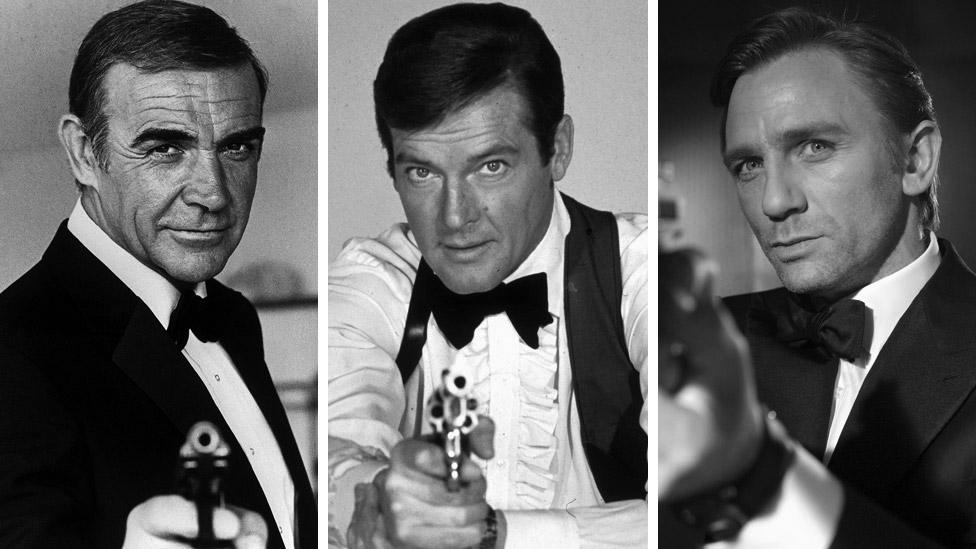What will director Danny Boyle bring to James Bond?
- Published
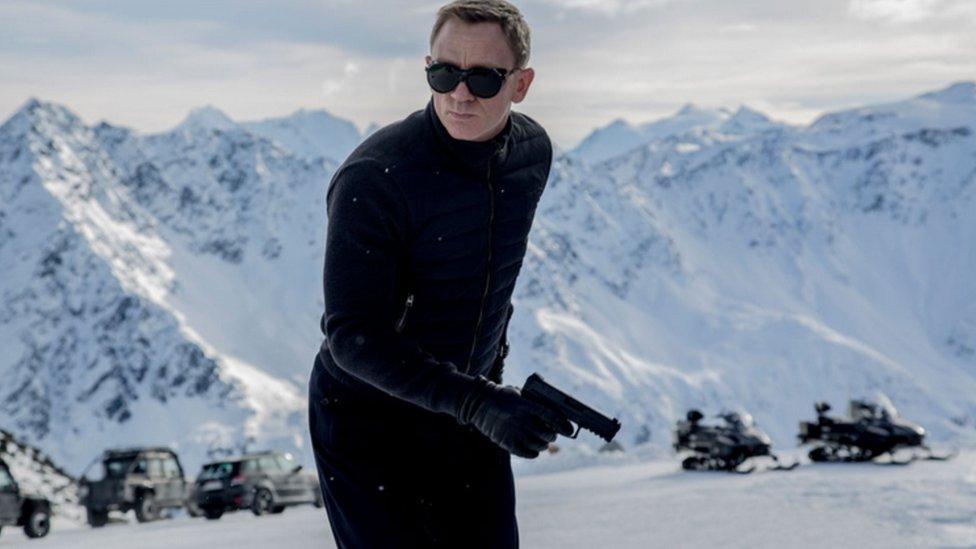
Craig last played Bond in 2015's Spectre
It's an official secret no more: Danny Boyle is to direct the next James Bond film.
Set for release in October 2019, it marks the 25th instalment in the franchise - the first since 2015's Spectre,
The film, which is yet to be given a title, reunites Oscar-winning director Boyle with Craig for the first time since Bond's spoof London 2012 cameo.
Allow X content?
This article contains content provided by X. We ask for your permission before anything is loaded, as they may be using cookies and other technologies. You may want to read X’s cookie policy, external and privacy policy, external before accepting. To view this content choose ‘accept and continue’.
But this, Craig's fifth official mission as Bond, is no laughing matter.
Will it be a case of Bond, same Bond, or will 007, in these changing times, find his Martini both shaken and stirred?
British auteur
Confirmation of Boyle's appointment followed months of speculation and rumour.
The 61-year-old is a titan of the British film industry - renowned for his spunky grit - typified by his 1996 film Trainspotting.
Thomas Hobbs, a film writer for Little White Lies, says Boyle's willingness to "experiment with pacing and cinematography so profoundly" - on films such as Trainspotting and 28 Days later - cultivated his "radical image".
"He wasn't afraid to experiment with the movement of the camera to create claustrophobia or explore themes in graphic detail," he says.
Boyle's depictions in his directorial debut Shallow Grave, and the dead baby hallucination in Trainspotting, are moments that "other mainstream auteurs might sanitise a little", Hobbs adds.
This risk-taking history is something many Bond connoisseurs are excited about, openly admitting that Bond is in dire need of a new suit.
After three films that got "bogged down" in a family origins story arc that "just doesn't fit this world," John Rain, the host of Smersh Pod - a podcast celebrating all things Bond - hopes Boyle's appointment will bring a "breath of fresh air".
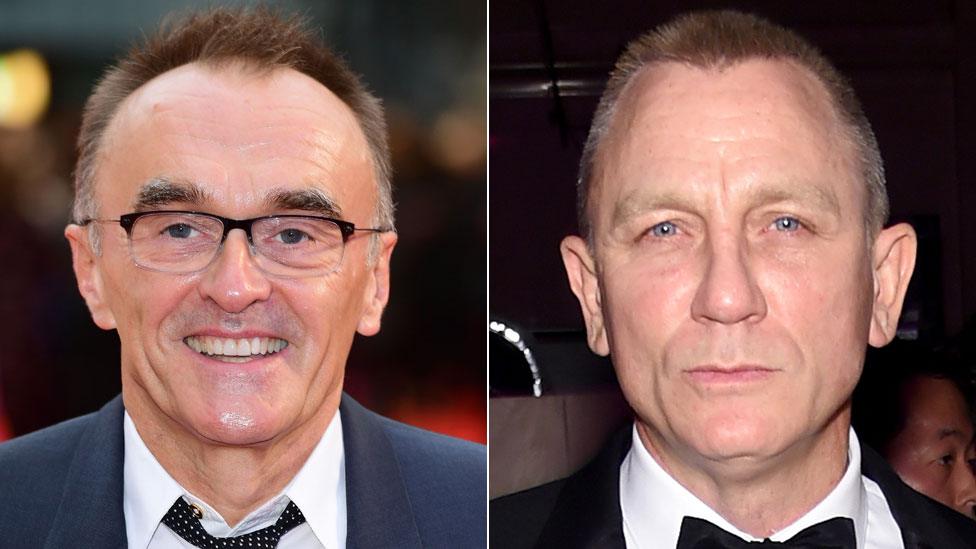
Boyle and Craig previously worked together on Bond short Happy and Glorious
"I think if everybody involved with Bond was honest, they would admit that Spectre was a mistake," Rain says. "And the attempt at trying to stitch the plots of the last three films together was folly."
But this time around, Bond, saddled with the same writing team since The World Is Not Enough, from 1999, is set to have his mission objectives modernised by Boyle's long-time screenwriter, John Hodge.
Rain says news of the partnership, based on an original idea from Boyle himself, has "lifted my spirits no end" about the new film.
A stale mission?
However, not everybody has such confidence in Boyle's abilities.
Hobbs argues that the the man who dragged cinema into '90s Cool Britannia "is vastly different to the Danny Boyle making the safe, slightly boring, genre movies such as Trance, 127 Hours and Slumdog Millionaire over recent years".
Beth Webb, a broadcaster and film journalist, agrees, admitting that despite Boyle's long and prestigious career in British film, she "rolled her eyes a bit" at news of his appointment.
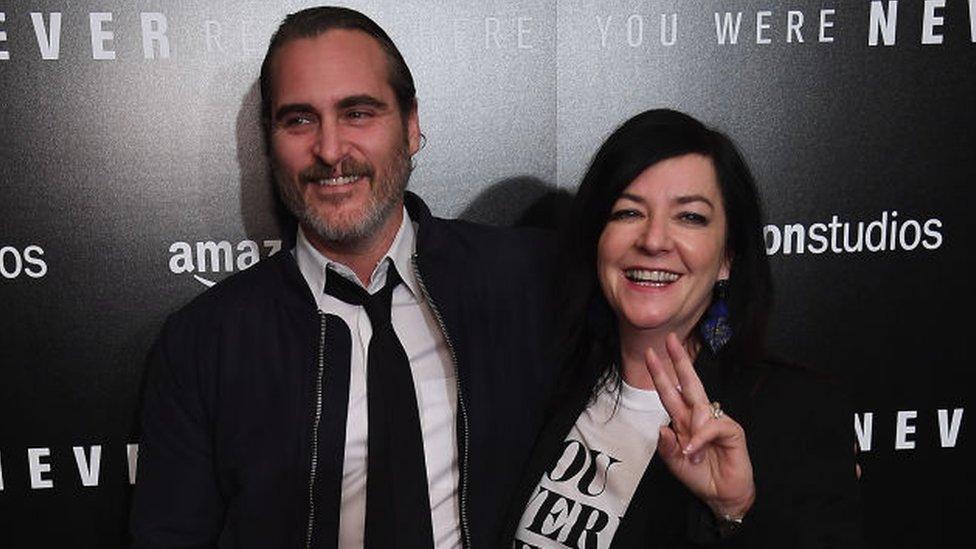
Joaquin Phoenix, star of You Were Never Really Here, with director Lynne Ramsay
"He's another white, male director, when really this was an opportunity to do something new and exciting," she says.
Webb finds it ironic that for Bond - a character supposedly so daring and defined by risk-taking - "the people behind the films are playing it very safe".
Her preferred choice would have been Lynne Ramsay, the creative force behind the big screen adaptation of Jonathan Ames' novel You Were Never Really Here - a psychological drama framed in a dark, violent world of amoral paedophile rings, which Webb argues proved female directors "can handle suspense, violence and fragile masculinity".
Changing gender politics
The idea of a more human, emotive Bond detached from his traditionally misogynistic stereotype feels particularly pertinent in the "Me Too" era.
James Chapman, author of numerous books on Britain's most famous fictitious spy, argues that while critics regard Bond as a sexual predator, epitomised by his treatment of Pussy Galore in Goldfinger, recent instalments have adapted accordingly.
"I'd argue that the Bond films have responded to changing gender politics not so much through changing Bond himself (who remains largely a "sexist, misogynist dinosaur" in Judi Dench's M's memorable phrase from Goldeneye) but rather by changing the attitudes of the characters around him towards Bond.
"Ever since Goldeneye, now some 23 years ago, Bond has often been confronted with women in positions of authority," he says.
Boyle therefore needs to approach Bond with a self-aware, yet fearless, mindset to stay relevant in 2018, claims Hobbs.
"For Bond to really evolve and strike gold again, the series needs to invest its time in a director and star who aren't afraid to experiment with the formula and are happy to take people outside of their comfort zone," he says.
Bond and Boyle may have found each other at just the right time.
- Published25 May 2018
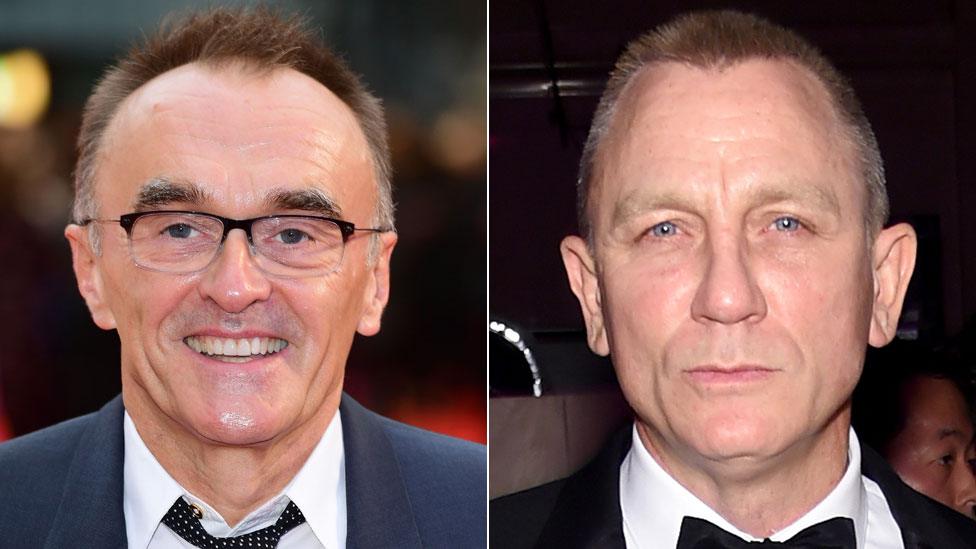
- Published17 August 2017
